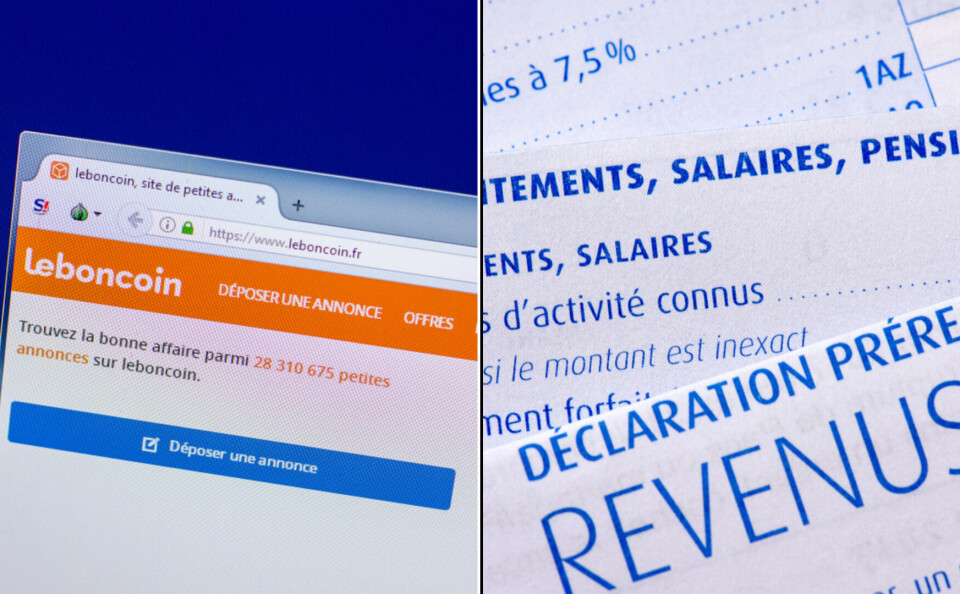-
Is health insurance required to return to visit England from France?
Certain health access remains free at the point of use for all
-
Do self-employed people in France put their personal assets at risk?
Rules for self-employed workers are different than for employees
-
Last few days remaining to modify 2025 tax declaration online in France
December 3 closing date for online correction service
How do French tax declarations work with revenue from Leboncoin?
We look at when you have to declare if you are selling items on online sales platforms

Reader question: I regularly sell items on Leboncoin and Vinted. I don’t make a lot of money but do I need to declare these for this year’s tax declaration?
Websites such as eBay, Vinted or Leboncoin are popular in France and are used by millions of people to buy and sell everything from clothes to cars.
In terms of declaring revenue received from these sites, it depends on what you are selling and if you are making a profit.
Selling items you make or items you have bought to resell at a profit
If you are getting income from these sites from making items and selling them or buying and reselling items, then the income does have to be declared.
Note that online platforms based in France have a legal obligation to inform you about tax obligations and also to send you a summary of your earnings on the site in the previous year. This is sent around the start of the year.
Sites are also obliged to make a notification of your income to the tax office if the amounts you received were more than €3,000 or you carried out more than 20 transactions on the site in the year. These limits are per platform.
If you exceed these limits, this income will be shown to you during your income tax declaration – however it is for your information and you do not necessarily have to transfer the figures to the main boxes of the declaration. It is for you to decide what is declarable depending on your personal situation.
This income is usually declarable as micro-Bic income, unless you opt for taxation under the régime réel (unlikely where this is a top-up income and not a main business).
Selling second-hand items (not for profit)
You do not need to declare if you are selling your own everyday items, eg. used clothes or
old books or electrical goods.
Essentially there would only be a declarable income here if you were considered to have made a capital gain but in the vast majority of cases you will probably sell for less than you paid for the item.
Expensive artworks or antiques
There is an exception in the case of selling antiques, objets d’art, precious metals and jewels and similar valuables and collectibles.
In some cases these are declarable - and payable - on special forms within a month of sale, either for a flat tax or under the ordinary regime of capital gains on sales of so called ‘moveable property’ (in French law this refers to everything you own apart from buildings and land) if you have paperwork to prove the gain.
With the exception of precious metals, where all sales are taxable, this only concerns sales for amounts of more than €5,000.
Capital gains on moveable property are also transferred to box 3VZ of the 2042C form or the main online annual declaration to be accounted for in your overall net income figure for the year. Sales of people’s ordinary home furnishings or home electrical and white goods are not affected by this.
To understand more about French income tax declarations download our helpguide, Income Tax in France 2022 (for 2021 income). As a digital, downloadable guide, priced €14.90, it was last updated on April 8.Order your copy here
Related articles
France’s deadline for paper income declarations extended to end of May
French tax declarations: Four common and costly errors to avoid
Best way for Britons in France to manage ‘lump sums’ of money
























